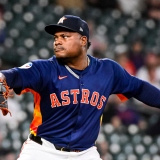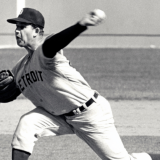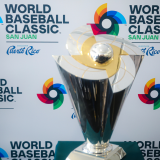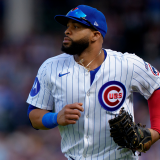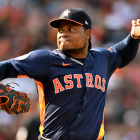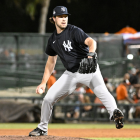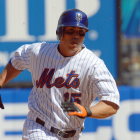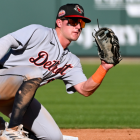
Four reasons why the Padres have crashed out of playoff position
The Padres, as hyped as any team in the spring, don't seem likely to make it to October
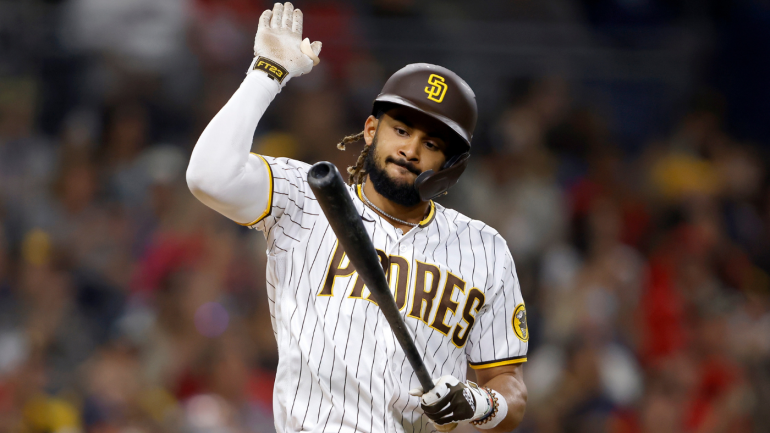
The San Diego Padres were swept over the weekend by the St. Louis Cardinals, their top competition for the National League's second wild card spot. The Padres are now 3 1/2 games back with 12 remaining, a scenario that has resulted in a playoff berth in less than 1 percent of SportsLine's forecasts. Oh, and by the way, those 12 games will be against the San Francisco Giants, Los Angeles Dodgers, and Atlanta Braves -- or, 60 percent of the league's postseason field if the playoffs started today.
If you're a more casual observer, you might wonder how things went south so quickly for San Diego. After all, the Padres were regarded as near-locks to reach October back in spring, following a winter that saw them acquire Yu Darvish, Blake Snell, and Joe Musgrove in trades. The Padres lived up to the hype early on, finishing the first half on a 92-win pace. Since then, however, San Diego's good vibes have been extinguished by a brutal second half that has seen them record victories at just a 66-win pace -- and has also led to some dugout fireworks.
So, what happened here? Let's examine four reasons for the disappointing Padres.
1. The rotation failed
General manager A.J. Preller has poured a lot of resources into improving his rotation over the last year-plus. In addition to the aforementioned trades for Darvish, Snell, and Musgrove, he shipped a handful of players to Cleveland last summer to secure Mike Clevinger. (Clevinger missed this season because of elbow surgery.) Leading up to the deadline, he pursued Max Scherzer and José Berríos, though he whiffed on both.
Preller's efforts weren't just external. He kept Chris Paddack, Dinelson Lamet, and Ryan Weathers, and he said a little prayer that MacKenzie Gore's issues (be it the yips or something else) could be smoothed out in time for him to make an impact.
Unfortunately, Preller's efforts haven't achieved the desired effect. Snell started the season slow and then hurt himself as he returned to his old form. Darvish was the inverse, to an extent: his 2.44 ERA through June has now inflated to 4.13 just 12 starts later. Musgrove has been phenomenal; Paddack and Weathers less so; and Lamet, for his part, has again had his availability compromised by injuries.
Add it all together, and the Padres' rotation -- a seeming strength on paper -- has posted the 17th-best unit ERA in the majors, putting them in company with the Boston Red Sox, the Colorado Rockies, and the Washington Nationals. Even now, with their season riding on every game, the Padres are starting Jake Arrieta and Vince Velasquez, two veterans recently released by other teams.
That is, fair to say, not what you want.
2. Injuries accumulated
Human beings gravitate to simple explanations for complex problems. In this case, it's enticing to blame human error (be it Preller's, ex-pitching coach Larry Rothschild's, or whomever) for San Diego's pitching failures. It would be comforting to blame poor luck (we'll get to that). The truth is probably a little of each in most cases, but it's hard to ignore the L-word when it comes to San Diego's injury woes.
No team has lost more player days to injury this season than the Padres, according to Spotrac. Indeed, the Padres (more than 2,400 days) are one of just three teams to clear the 2,000-day mark. The majority of those injuries have occurred on the pitching side: San Diego has lost nearly 1,900 days worth for arms alone. Only one other team has lost as many as 1,500 days this season.
This shouldn't come as a surprise based on what the San Diego injured list looks like at present. They have four starting pitchers on the mend, as well as eight relievers. That's a full pitching staff, all unavailable on a nightly basis. It's possible to overcome that kind of poor injury luck, but it's not easy.
3. Underperformance vs. bad teams
Here's an example of where the Padres cannot be absolved of all blame for their struggles. Good teams tend to fatten up when their schedule affords them a series against an inferior foe. These Padres, for whatever reason, didn't. They combined for a 19-19 record against the Rockies and the Arizona Diamondbacks; they lost season series to the Rockies and the Chicago Cubs; and so on.
Overall, the Padres had the 23rd-highest winning percentage against losing teams, winning just over half of their games for a 40-39 mark. The lowest winning percentage against sub-.500 teams possessed by a playoff team belongs to the Braves, and they've still won 60 percent of their contests against losing clubs.
Had the Padres simply played at the Braves' rate against bad teams, they would have an additional seven wins, or enough to feel secure in their playoff standing.
4. Poor sequencing
Here's the kicker: despite all the above, the Padres should still have a better record than they do based on their results.
Going off runs scored and runs allowed alone, the Padres have underperformed by three wins, or almost the entire gap between themselves and the Cardinals. (The Cardinals have overperformed by five wins, but that's another matter.) What's more is the Padres are 18-23 in one-run games. That's the fifth-worst rate in the majors.
Now, performance in one-run games isn't always luck. It can be the product of good (or bad) managing, good (or bad) relief pitching, and so on. The Padres happen to have one of the best bullpen ERAs in baseball, suggesting it might be on Jayce Tingler's head … except, the Tampa Bay Rays are 18-22 in one-run contests, and no one blames Kevin Cash for their record. Sometimes, baseball is just like that.
The Padres are all but certain to miss the postseason. When they do, they'll make changes to their personnel (including, perhaps, in the dugout). It shouldn't be lost on anyone, though, that the Padres weren't solely responsible for their own demise. Their overwhelming amount of injuries (particularly to the pitching staff) and their unsustainably poor play in one-run games cost them as much as anything. It's not satisfying to conclude that things would probably work out differently if the Padres could play the 2021 season over again. But it is true, and it won't help San Diego from wondering what could have been as their fall ends earlier than expected.


